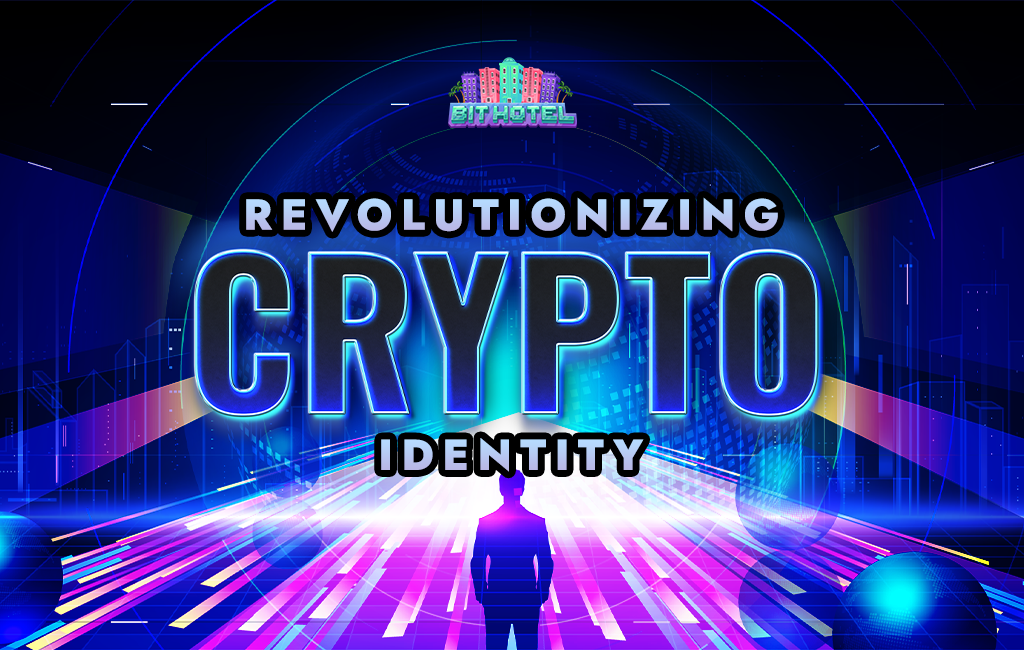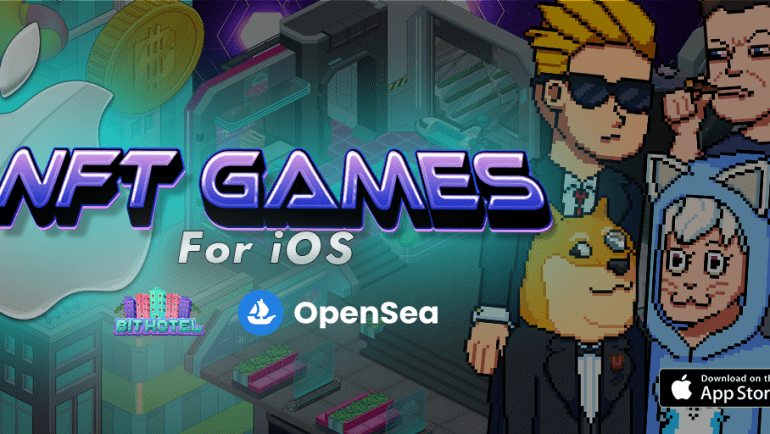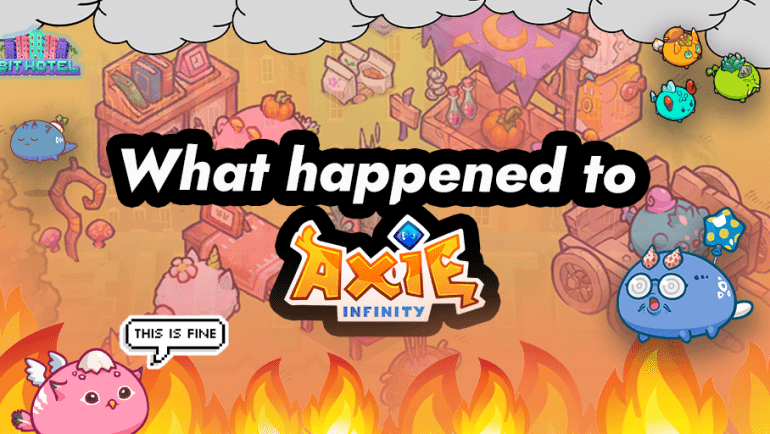8715Views 0Comments


Revolutionizing crypto Identity with worldcoins AI-Powered Device
Digital verification of identity is becoming more crucial in a world where bots that pose as people are more common. The Orb, an AI-powered encrypted identification device developed by Worldcoin, fills this need. The Orb establishes a distinct identity connected to a user’s bitcoin wallet using biometric data and artificial intelligence. It has been in testing for more than one and a half years, and a debut is anticipated for the first half of 2023.
The Origins of Worldcoin
Before we dive into the details of Worldcoin’s AI-Driven Crypto Identity Device, the Orb, let’s take a step back and explore some of the background and context surrounding this technology.
Worldcoin, co-founded by Sam Altman, the former president of Y Combinator, has attracted significant investment and attention from both the tech and crypto communities. Its biometrics-driven protocol, which aims to prove personhood and enhance security in the cryptocurrency space, has already raised over $25 million from investors such as Andreessen Horowitz, Coinbase Ventures, and FTX founder Sam Bankman-Fried.
Despite some concerns and criticisms around the use of biometric data for identity verification, Worldcoin’s significant funding and unicorn valuation of $1 billion suggest that there is significant interest and potential for this technology.
Alex Blania operates as the CEO of Worldcoin, the company he co-founded alongside Sam Altman and Max Novendstern. They started off by hoping “a world where everyone around the globe, regardless of who they are, could participate in the growing digital economy and benefit from decentralized, collective ownership”.
Understanding Worldcoin
Worldcoin’s ambitious goal is to create a truly global cryptocurrency that will facilitate widespread crypto adoption. To achieve this, the company has created a token, an app, and a controversial biometrics-driven protocol to prove personhood. The system, called Proof-of-Personhood, uses eye-scanning to validate identity and prevent the creation of multiple accounts.
While the official launch of the crypto is still pending, Worldcoin is running a pre-launch pilot program to encourage more sign-ups. The company claims to have already deployed over 25 operators in countries like France, Indonesia, Sudan, and Chile.
Technically, Worldcoin uses a layer-2 network on top of Ethereum’s base layer and employs Optimistic Rollups for scalability. The underlying token follows the ERC-20 standard, ensuring compatibility with existing tools and services. Overall, Worldcoin’s unique approach to identity verification and its potential for global adoption make it a crypto project worth keeping an eye on.
How Worldcoin Works
Worldcoin is a digital currency that aims to solve identity-based challenges by creating a privacy-preserving digital identity called “World ID.” The World ID is designed to prove an individual’s unique personhood and is necessary for users to claim their free share of Worldcoin.
The Worldcoin ecosystem consists of three components: World ID, Worldcoin, and the World App. The World ID is the foundation of the system, and users need to verify their uniqueness through an orb to obtain it. Once users have their World ID, they can use the World App to make payments, purchases, and transfers globally using the Worldcoin token, digital assets, and traditional currencies.
To encourage widespread adoption, Worldcoin aims to register 2 billion users before launch and reward each user with Worldcoin, incentivizing more to join in. However, to ensure an even distribution of funds, Worldcoin has implemented a Proof-of-Personhood system.
The most controversial aspect of Worldcoin is its user registration process, which requires users to have their eyes scanned by an orb to prove their unique human status. The orb takes a high-res picture of the user’s eyes, distills the iris biometric information into an IrisHash, and stores it in a database to ensure human uniqueness. Worldcoin claims that this process is necessary for verifying an account’s uniqueness and aims to secure the currency without requiring users to surrender too much of their personal information.
The Orb explained
The Orb is an essential component of Worldcoin’s Proof-of-Personhood system, which ensures that each user is unique and is not creating multiple accounts to claim more tokens. It is an imaging device that captures and processes images of an individual’s iris pattern to verify their identity without requiring any personal information like their name or address. As no two individuals have the same iris pattern, the orb can reliably tell people apart from each other.
Worldcoin prioritizes the privacy and safety of its users and complies with international standards, including eye safety regulations set forth in IEC-62741. As the project continues to update its technology for identity verification, it will continue to ensure the safety and privacy of its users.
Worldcoin operators are individuals who operate orbs around the world and can earn Worldcoin or fiat currency for each user they help verify. While they are not employees of Worldcoin, they are expected to follow a strict code of conduct that emphasizes compliance with laws and protecting the public. These operators play a critical role in helping WorldCoin achieve its goal of registering 2 billion users before launch and incentivizing widespread adoption of the project.
Privacy and Decentralization
Alex Blania emphasized that Worldcoin’s app is non-custodial, which means that users control their private keys. This allows users to use DeFi protocols like Uniswap and Aave using Worldcoin’s app. In addition to this, Worldcoin has introduced the Worldcoin Foundation, a nonprofit organization with the goal of steering Worldcoin towards decentralization.
However, decentralizing is a challenging process, even for pure DeFi protocols like MakerDAO, which still has a highly imperfect governance model. To address this, the Worldcoin team has worked with people from Maker on its decentralization efforts.
Worldcoin’s Orb requires the decentralization of both the creation and distribution of hardware, as well as the operational aspects of using the product to ascertain biometric data. As part of its efforts to decentralize, Worldcoin has made some of its hardware designs open-source on Github, with plans to progressively release more.
Regarding privacy concerns, Worldcoin does not itself store biometric data. Instead, the project keeps a hash of the image taken by the orb, which is a unique string of numbers created with a type of algorithm commonly used in cryptography. However, not everyone is satisfied with the system’s privacy, with some like Edward Snowden criticizing the use of biometric data for anti-fraud and other purposes.
Blania admitted that he wished there were other ways to establish personhood digitally, but he didn’t think it was possible. The Worldcoin team has released a document outlining how the Orb works and how it maintains privacy, but the project still has a long way to go in terms of establishing public trust.
Despite attracting significant press attention for its do-gooder messaging, some have criticized Worldcoin’s protocol, including security and privacy advocates. Furthermore, the fact that venture capitalists like a16z have invested in the project has raised questions about the potential profit motives behind the project.
Blania acknowledged that some of the skepticism towards Worldcoin was due to Sam Altman’s star power, as people immediately treated it as a huge organization when, in reality, it was just a small group of fewer than 20 people iterating on ideas of how to establish digital identities. Nevertheless, the project has faced criticism from both within and outside of the crypto community, with concerns about the use of biometric data and the project’s overall approach to decentralization and privacy.
Concluding Remarks
As AI-driven growth continues to expand, it is crucial to consider its impact on global wealth distribution. According to a report co-authored by the Future of Humanity Institute and the University of Oxford, AI-driven entities may account for up to 1% of global GDP. These predictions may seem far-fetched, but recent AI advancements, such as chatbots passing graduate-level tests, suggest otherwise.
Sam Altman, the CEO of OpenAI, recognizes the need for improving global wealth redistribution. In a Bloomberg report, he stated, “I’m very interested in things like universal basic income and what’s going to happen to global wealth redistribution and how we can do that better”. Worldcoin, a cryptocurrency company, aims to create a decentralized digital economy and collective ownership on a global scale. To achieve this, they plan to distribute 80% of their total supply to the global population. They aim to achieve this by incentivizing as many new “unique users” as possible to use their cryptocurrency, with a special focus on developing countries.
However, centralizing a massive database of iris scans for over a billion people raises security concerns. To ensure the success of their vision, WorldCoin must execute their plan in a decentralized and secure manner while providing real value to the people they seek to serve.
As Naval Ravikant wisely reminds us, “Intentions don’t matter. Actions do.” The success of Worldcoin will ultimately depend on their ability to execute their vision while ensuring the security of their decentralized system.
Now that you are here, make sure to check out the Bit-Hotel game. Completely for free! Click here to play.

